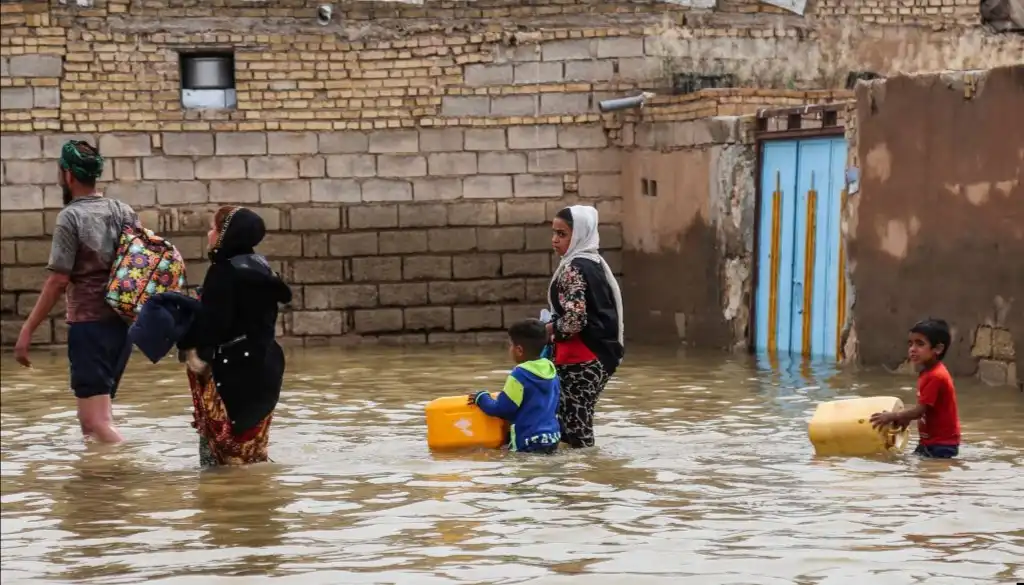Iran is grappling with a severe environmental paradox: intense, sudden flooding has struck the western part of the country following a prolonged drought. This dry spell has caused what officials describe as the nation’s worst water shortage in decades.
The Paradoxical Rainfall Event
Heavy rainfall on Sunday triggered flooding that caused extensive damage to infrastructure, roads, and residential homes in the west. Authorities reported that one town near Abdanan recorded an astonishing 52 millimeters of rain in just 45 minutes, leading to immediate flooding. The total rainfall reached 73 millimeters by the end of the day.
Fortunately, no immediate casualties were reported in the affected town, which has a population of approximately 3,000.
Flood Risk Rises Due to Drought
On Monday, Iran’s meteorological organization issued a flood warning for six western regions. Rain was forecast to affect 18 of the country’s 31 provinces.
Paradoxically, prolonged and extreme dry conditions actually increase the risk of flash floods. Drought hardens the ground, significantly reducing the soil’s capacity to absorb heavy rainfall quickly.
Rainfall levels across Iran have been dramatically low, reportedly 85 percent below average. This severe deficit has depleted water dams and caused taps to run dry, affecting parts of the capital, Tehran.
Experts attribute the crisis to a combination of factors, including climate change, inefficient agricultural practices, poor water management, and illegal well drilling.
Desperate Rainmaking Efforts
The sudden flooding in the west comes just after Iran initiated experimental measures to increase precipitation. On Saturday, the country conducted its first cloud-seeding flight of the year over the Urmia Lake basin in the northwest, a region that has largely dried out.
Cloud seeding is a technique utilized for decades. It involves injecting specialized chemical particles into clouds from aircraft to artificially induce rainfall.
The nation’s President, Masoud Pezeshkian, recently issued a grave warning. He stated that if sufficient rainfall does not occur soon, Tehran’s vital water supply could face rationing. He even suggested the potential for the evacuation of residents from the city due to resource scarcity.
UN Chief from Sudan: Darfur “Horror Show”–Send More Aid Workers Now




















